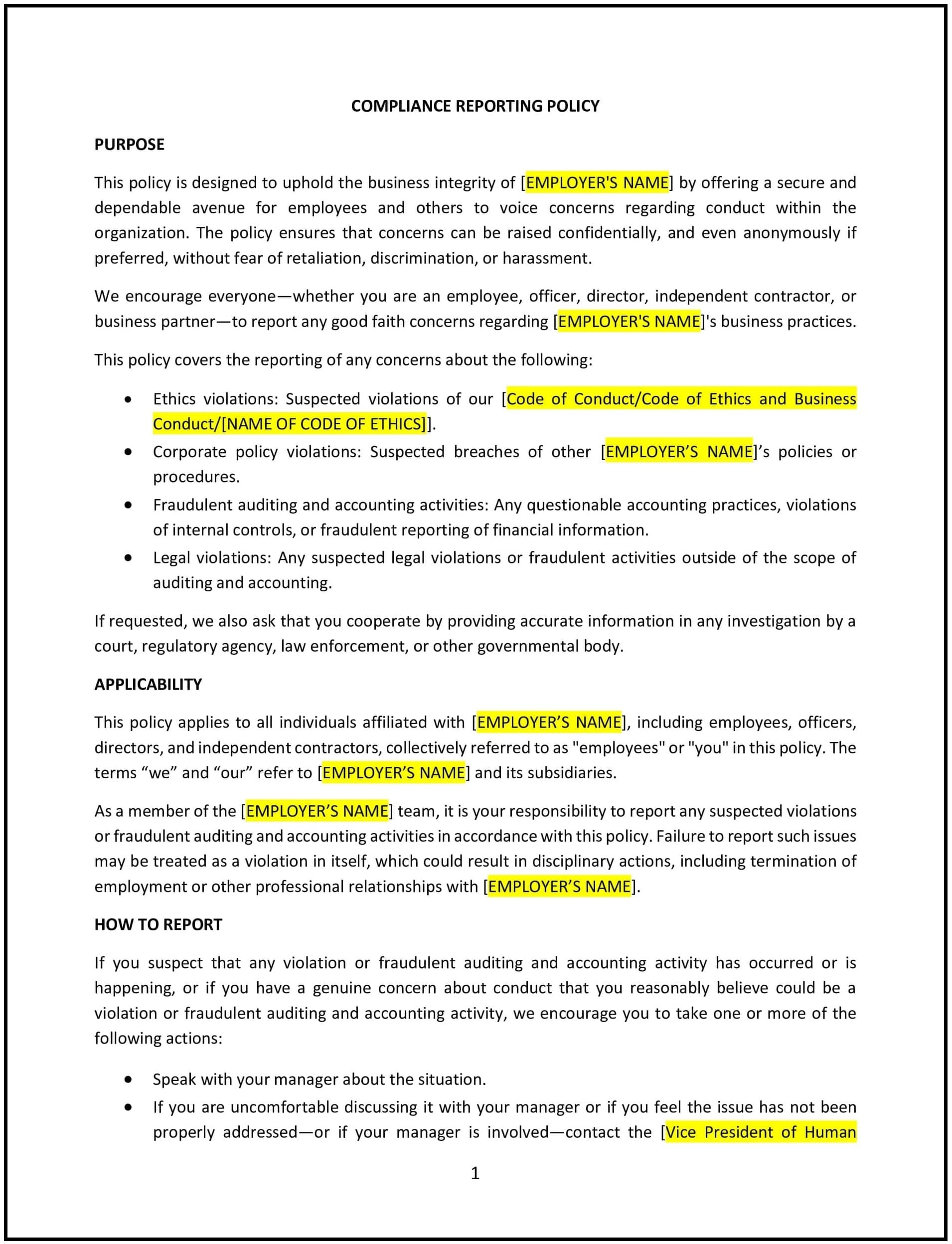Compliance reporting policy (North Dakota): Free template
Got contracts to review? While you're here for policies, let Cobrief make contract review effortless—start your free review now.

Customize this template for free
Compliance reporting policy (North Dakota)
This compliance reporting policy is designed to help North Dakota businesses establish guidelines for employees to report legal, regulatory, or ethical concerns. The policy outlines reporting procedures, protections against retaliation, and investigation protocols to ensure compliance with applicable laws and business standards.
By implementing this policy, businesses can encourage transparency, prevent misconduct, and protect whistleblowers.
How to use this compliance reporting policy (North Dakota)
- Define reportable concerns: Specify issues such as fraud, workplace safety violations, harassment, discrimination, or unethical behavior.
- Establish reporting channels: Provide multiple options for employees to report concerns, such as HR, compliance officers, or anonymous hotlines.
- Outline investigation procedures: Explain how reported concerns will be reviewed, documented, and resolved.
- Prohibit retaliation: Protect employees from negative consequences for reporting issues in good faith.
- Maintain confidentiality: Ensure reports remain private and handled discreetly.
- Provide training and awareness: Educate employees on their rights and responsibilities regarding compliance reporting.
- Review regularly: Update the policy based on evolving legal requirements and business needs.
Benefits of using this compliance reporting policy (North Dakota)
Implementing this policy provides several advantages for North Dakota businesses:
- Encourages ethical business practices: Supports a culture of integrity and accountability.
- Reduces legal risks: Helps businesses address compliance issues before they escalate.
- Protects whistleblowers: Prevents retaliation against employees who report misconduct.
- Strengthens regulatory compliance: Aligns with federal and state reporting requirements.
- Reflects North Dakota-specific workplace considerations: Addresses regional industry standards and legal expectations.
Tips for using this compliance reporting policy (North Dakota)
- Provide clear reporting instructions: Ensure employees know how and where to report compliance concerns.
- Offer anonymous reporting options: Allow employees to report misconduct confidentially.
- Investigate all reports promptly: Address concerns with thorough, unbiased investigations.
- Train managers on compliance reporting: Ensure leadership understands their role in handling reports.
- Adjust as needed: Update policies to reflect changes in regulations or business operations.